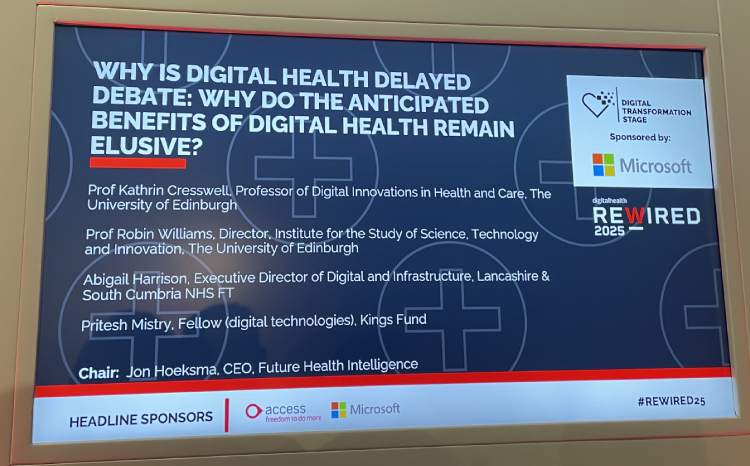Standard NHS user interface to be developed
- 4 November 2004
Microsoft has announced that it has signed a memorandum of understanding with the National Programme for IT to deliver a standard user interface (UI) for all NHS clinical information systems.
The announcement came at the same time as news of a long-term licensing agreement with the NHS for Microsoft software.
Under the agreement relating to the UI, Microsoft will invest approximately £40m in research and development in the healthcare market. It will also deliver customised versions of Windows and Office, specifically tailored for the NHS. A major aim is to make clinician’s experience of using systems as consistent as possible.
It is hoped that the development of a standardised UI for all clinical systems will help reduce errors, and cut the need for clinicians to retrain each time they use a different system.
Richard Granger, director-general of NHS IT, said: "This is a major investment by Microsoft to help develop a common look and feel of all clinical applications to improve patient care and safety across the NHS."
The user interface standards will apply to software applications on all devices – desktop PCs, laptops, tablet PCs and PDAs – within the NPfIT. It is envisaged that over time, the new standards will be adopted by third party suppliers.
While the scope of the standard UI project is still being agreed, elements that Microsoft will deliver include a design guide "to which every software user interface purchased under the NPfIT must comply, on all types of display device".
In addition Microsoft will develop a user interface toolkit, which Microsoft confirmed to EHI would be in the form of "real code", to enable software companies develop user compliant user interfaces quickly and efficiently.
Development of the new interfaces standards is underway with Microsoft already working with iSOFT and IDX, the two leading application vendors for NPfIT.
Neil Jordan, head of healthcare, Microsoft UK, told EHI that the level of investment was unusual for Microsoft in a vertical market, and a reflection of the importance it attached to the healthcare market and NHS in particular. "But we will not be getting into the market of being an application provider," he added.
The new tailored versions of Windows and Office, to be made available under the new NHS corporate licensing agreement, will be full shipping versions of the latest Microsoft software but with additional tools and features embedded to tie them in with clinical systems.
Jordan told EHI "What we can deliver is a specific build for the NHS that recognises that it is being used within the NHS and incorporates features like Smart Tags that automatically recognise a patient’s NHS number."
He also highlighted the potential within the NHS of new Office components such as InfoPath, designed to automatically create XML documents. "There are good reasons to tie in personal productivity tools with the clinical applications to be delivered by NPfIT."
Jordan stressed though that Microsoft was not seeking to "go down the path of seeking to tie people in to our core technology".
Further possible developments may include integrating access to the content of the National electronic Library for Health into Office, and identifying what the clinical device of the future will look like. Microsoft plans to leverage its capabilities in software and relationships with hardware manufacturers to develop new portable devices specifically designed to meet the needs of clinicians.
Most of the £40 million research and development to be invested by Microsoft will be in the UK, working with clinicians as close to the coal face as possible. The firm will also work with product groups in the US to deploy leading edge technology such as systems able to track eye movements to design the best possible UI.




